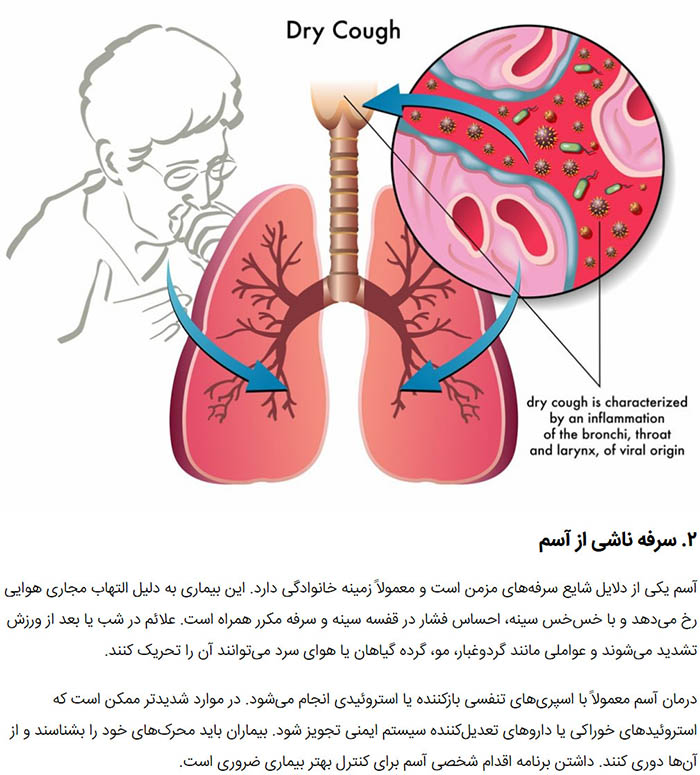Asthma is one of the most common causes of chronic cough, especially in children and young adults, and it often runs in families. This condition results from inflammation and narrowing of the airways, making it difficult for air to move in and out of the lungs. Along with persistent coughing, asthma is typically accompanied by wheezing, chest tightness, and shortness of breath. Symptoms tend to worsen at night, during exercise, or when exposed to triggers such as dust, pet hair, pollen, smoke, or cold air.
Effective asthma management usually involves medications that reduce inflammation and open the airways. Inhaled corticosteroids are commonly prescribed to control inflammation, while bronchodilators help relax the airway muscles for quicker relief during flare-ups. In more severe or persistent cases, doctors may recommend oral steroids, leukotriene modifiers, or immunosuppressants to keep symptoms under control.
Avoiding asthma triggers is an essential part of preventing coughing episodes and flare-ups. Patients are encouraged to identify what irritates their lungs and minimize exposure whenever possible. Creating and following a personal asthma action plan—developed with a healthcare provider—helps individuals monitor symptoms, adjust medications when necessary, and respond quickly if breathing problems worsen.

